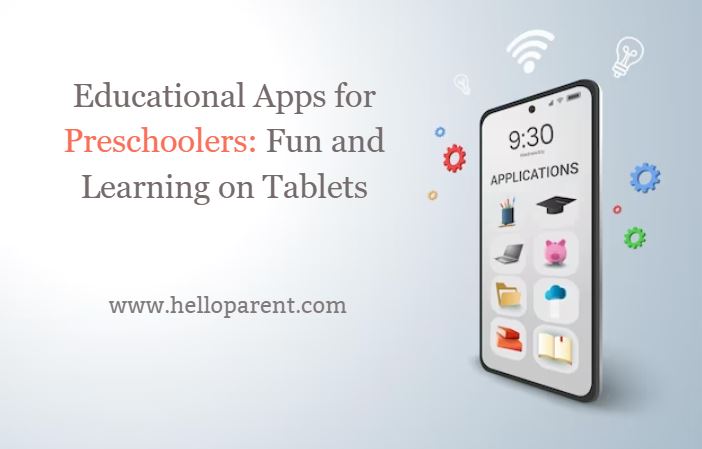Educational Apps for Preschoolers: Fun and Learning on Tablets.
In today's digital age, educational apps for preschoolers have become a valuable tool in early childhood education. Whether you're exploring preschools in India, searching for the nearest preschool to you, or considering a play school near you, incorporating educational apps into the curriculum can enhance your child's learning experience. Let's delve into the world of educational apps, how they benefit preschoolers, and what to consider when using them.

3. Creativity and Imagination
Educational apps often include creative activities like drawing, coloring, and storytelling. These encourage children to use their imaginations and express themselves through art.
Here is the listing of top Preschool in Dwarka, Preschool in Greater Noida
Originally Published Here.
The Digital Playground: Learning Through Educational Apps:
Educational apps for preschoolers offer a unique blend of fun and learning. With interactive games, engaging activities, and colorful visuals, these apps turn tablets into a digital playground where children can explore and discover. Here are some of the benefits of using educational apps in preschools:1. Early Literacy and Numeracy Skills:
Educational apps are designed to introduce young children to the fundamentals of literacy and numeracy. Through games that involve letters, numbers, and words, preschoolers can develop their cognitive skills while having fun.2. Problem-Solving and Critical Thinking:
Many apps include puzzles, mazes, and logic games that stimulate problem-solving and critical thinking. These activities help children learn to analyze situations and make decisions.3. Creativity and Imagination
Educational apps often include creative activities like drawing, coloring, and storytelling. These encourage children to use their imaginations and express themselves through art.
4. Multilingual Exposure:
In a diverse country like India, multilingual exposure is essential. Educational apps can introduce children to different languages, helping them appreciate linguistic diversity.5. Emotional Intelligence:
Some apps focus on emotional intelligence, teaching children to recognize and manage their emotions. These activities promote empathy and social skills.6. Parental Involvement through the Parent App:
To ensure that parents stay actively engaged in their child's digital learning journey, many preschools use a parent app. This technology allows parents to receive updates on their child's app usage and progress.Tips for Using Educational Apps for Preschoolers
While educational apps offer numerous benefits, it's important to use them wisely. Here are some tips for incorporating apps into your child's early education:1. Choose High-Quality Apps:
Select apps from reputable sources that are known for their educational content. Look for apps that align with your child's developmental stage.2. Set Screen Time Limits:
Screen time should be balanced with other activities. Establish clear limits to ensure that your child gets a well-rounded education.3. Co-Play and Engage:
Whenever possible, co-play with your child. Join them in using the app and discuss what they're learning. This interaction enhances the educational experience.4. Encourage Offline Play:
Promote offline activities like reading books, playing with building blocks, and outdoor play. These activities are essential for a child's physical and social development.5. Monitor Progress through the Parent App:
Stay connected with your child's learning journey through the parent app. This tool provides insights into their app usage and educational progress.Here is the listing of top Preschool in Dwarka, Preschool in Greater Noida
Balancing Act: Technology and Early Education:
Educational apps for preschoolers have transformed the way children learn and explore. When used mindfully, these apps can be a valuable addition to the curriculum of preschools in India. Search play school near me or the nearest preschool to me, integrating technology into early education can offer a dynamic and engaging learning experience for young children.Originally Published Here.

Comments
Post a Comment